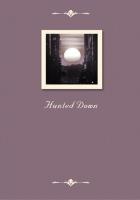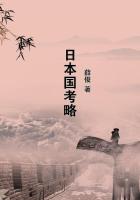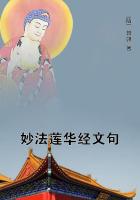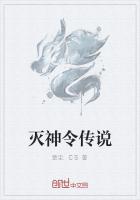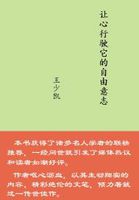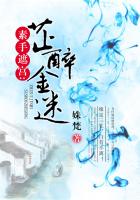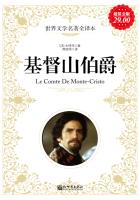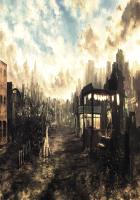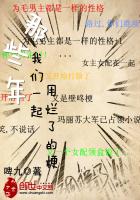Not until two years after the Peace of 1783 would Congress permit the veteran to come home.And when he did return in 1785 his people would not allow him to rest.At once he was elected President of the Council of Pennsylvania and twice reelected in spite of his protests.He was sent to the Convention of 1787which framed the Constitution of the United States.There he spoke seldom but always to the point, and the Constitution is the better for his suggestions.With pride he axed his signature to that great instrument, as he had previously signed the Albany Plan of Union, the Declaration of Independence, and the Treaty of Paris.
Benjamin Franklin's work was done.He was now an old man of eighty-two summers and his feeble body was racked by a painful malady.Yet he kept his face towards the morning.About a hundred of his letters, written after this time, have been preserved.
These letters show no retrospection, no looking backward.They never mention "the good old times." As long as he lived, Franklin looked forward.His interest in the mechanical arts and in scientific progress seems never to have abated.He writes in October, 1787, to a friend in France, describing his experience with lightning conductors and referring to the work of David Rittenhouse, the celebrated astronomer of Philadelphia.On the 31st of May in the following year he is writing to the Reverend John Lathrop of Boston:
"I have long been impressed with the same sentiments you so well express, of the growing felicity of mankind, from the improvement in philosophy, morals, politics, and even the conveniences of common living, and the invention of new and useful utensils and instruments; so that I have sometimes wished it had been my destiny to be born two or three centuries hence.For invention and improvement are prolific, and beget more of their kind.The present progress is rapid.Many of great importance, now unthought of, will, before that period, be produced."Thus the old philosopher felt the thrill of dawn and knew that the day of great mechanical inventions was at hand.He had read the meaning of the puffing of the young steam engine of James Watt and he had heard of a marvelous series of British inventions for spinning and weaving.He saw that his own countrymen were astir, trying to substitute the power of steam for the strength of muscles and the fitful wind.John Fitch on the Delaware and James Rumsey on the Potomac were already moving vessels by steam.
John Stevens of New York and Hoboken had set up a machine shop that was to mean much to mechanical progress in America.Oliver Evans, a mechanical genius of Delaware, was dreaming of the application of high-pressure steam to both road and water carriages.Such manifestations, though still very faint, were to Franklin the signs of a new era.
And so, with vision undimmed, America's most famous citizen lived on until near the end of the first year of George Washington's administration.On April 17, 1790, his unconquerable spirit took its flight.
In that year, 1790, was taken the First Census of the United States.The new nation had a population of about four million people.It then included practically the present territory east of the Mississippi, except the Floridas, which belonged to Spain.
But only a small part of this territory was occupied.Much of New York and Pennsylvania was savage wilderness.Only the seacoast of Maine was inhabited, and the eighty-two thousand inhabitants of Georgia hugged the Savannah River.Hardy pioneers had climbed the Alleghanies into Kentucky and Tennessee, but the Northwest Territory--comprising Ohio, Michigan, Indiana, Illinois, and Wisconsin--was not enumerated at all, so scanty were its people, perhaps not more than four thousand.
Though the First Census did not classify the population by occupation it is certain that nine-tenths of the breadwinners worked more or less upon the soil.The remaining tenth were engaged in trade, transportation, manufacturing, fishing and included also the professional men, doctors, lawyers, clergymen, teachers, and the like.In other words, nine out of ten of the population were engaged primarily in the production of food, an occupation which today engages less than three out of ten.This comparison, however, requires some qualification.The farmer and the farmer's wife and children performed many tasks which are now done in factories.The successful farmer on the frontier had to be a jack of many trades.Often he tanned leather and made shoes for his family and harness for his horses.He was carpenter, blacksmith, cobbler, and often boat-builder and fisherman as well.His wife made soap and candles, spun yarn and dyed it, wove cloth and made the clothes the family wore, to mention only a few of the tasks of the women of the eighteenth century.
The organization of industry, however, was beginning.Here and there were small paper mills, glass factories-though many houses in the back country were without glass windows--potteries, and iron foundries and forges.Capitalists, in some places, had brought together a few handloom weavers to make cloth for sale, and the famous shoemakers of Massachusetts commonly worked in groups.
The mineral resources of the United States were practically unknown.The country seems to have produced iron enough for its simple needs, some coal, copper, lead, gold, silver, and sulphur.
But we may say that mining was hardly practiced at all.

